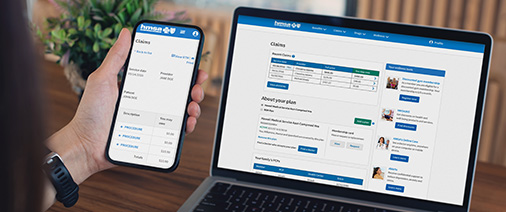What kind of provider should I see before getting pregnant?
An obstetrician-gynecologist (ob-gyn) is a medical health provider that specializes in caring for people during pregnancy and also focuses on caring for their reproductive health.
Is infertility treatment a benefit of my health plan?
For more information about the benefits of your plan, go to My Account to check your HMSA plan benefits or call your plan adviser. You’ll need your plan information.
What is a pre-pregnancy or preconception care checkup?
A pre-pregnancy checkup is a medical checkup by your ob-gyn before becoming pregnant to help you take the necessary steps to ensure a healthy pregnancy for you and your baby. At your checkup, your doctor reviews your:
- Diet and lifestyle.
- Prescribed medications, supplements, and vitamins you are taking.
- Medical history and family history.
- Pregnancies in the past.
- Partner’s lifestyle and medical and family history.
- Vaccination history.
- Risks of sexually transmitted infections or STIs.
You should make a list of questions that come to mind so you can ask your ob-gyn during the checkup.
When should I stop my birth control before I plan to get pregnant?
It’s possible to get pregnant a month or two after stopping most birth control methods. It’s best to talk with your doctor about the right time for you to stop contraception before attempting to conceive.
Could my weight affect my ability to get pregnant?
Yes. Being under or overweight can affect your chances of getting pregnant.
Your provider can tell you if you’re at a healthy weight to get pregnant and advise you on how to get to a healthy weight if necessary.
What vitamins or supplements are recommended to take before getting pregnant?
Taking a daily prenatal vitamin before pregnancy and while you’re pregnant may help with a healthy pregnancy and baby. Make sure that you check with your provider about which vitamins and supplements are right for you.
Prenatal vitamins contain recommended daily vitamins and minerals you’ll need before and during your pregnancy, including folic acid and iron. Prenatal vitamins may also help reduce nausea and vomiting if you start taking them before you get pregnant.
Taking enough folic acid for pregnancy is important to help prevent neural tube defects such as spina bifida.
Iron is used by your body to make the blood that you and your fetus will need during pregnancy. Pregnant people need more iron (27 mg per day) compared to someone who’s not pregnant (18 mg per day). Most prenatal vitamins provide this increased amount of iron needed.
Should I stop taking my prescription medication? Are there supplements, herbal remedies, or medicines that I shouldn’t take?
Don’t stop taking you prescription medication before talking to your doctor.
Some medications, vitamins, supplements, and herbal remedies could be harmful to your fetus and shouldn’t be taken while you’re pregnant. Bring these to your pre-pregnancy care checkup along with all your medications in their original bottles or packaging. Your ob-gyn can tell you what you can continue taking and what you’ll need to stop taking.
Before taking any new supplements, medicines, or herbs, consult with your doctor to make sure they’re safe for you and your fetus.
Why is it important to stop using substances? What about my partner?
Substances such as tobacco, alcohol, marijuana, illegal drugs, and prescription drugs (taken for a nonmedical reason) can cause serious problems for your pregnancy and your fetus, such as:
- Birth defects
- Low birth weight
- Preterm birth
- Stillbirth
Your partner and anyone in your household shouldn’t smoke around you during pregnancy. Secondhand smoke can affect a pregnant person and also affects their partner’s fertility.
Smoking, drinking alcohol, and using drugs may damage sperm cells and have harmful effects on the fetus.
Could my health history and my family health history affect my pregnancy?
Yes. Some health conditions may increase the risk of problems for the fetus, such as birth defects, and may also increase the risk of health problems for you.
Having health conditions such as seizure disorders, eating disorders, diabetes, high blood pressure, or depression doesn’t mean that you can’t have a healthy pregnancy or baby. Taking the proper precautions and getting good prenatal care may reduce pregnancy-related risks.
Make sure that you speak to your ob-gyn about your health and family health history as part of your pregnancy planning.
https://www.womenshealth.gov/pregnancy/you-get-pregnant/preconception-health
Questions to ask your doctor about getting pregnant:https://medlineplus.gov/ency/patientinstructions/000948.htm
Planning for pregnancy:https://www.marchofdimes.org/find-support/topics/planning-baby/planning-your-pregnancy
Birth defects: Other resources:

